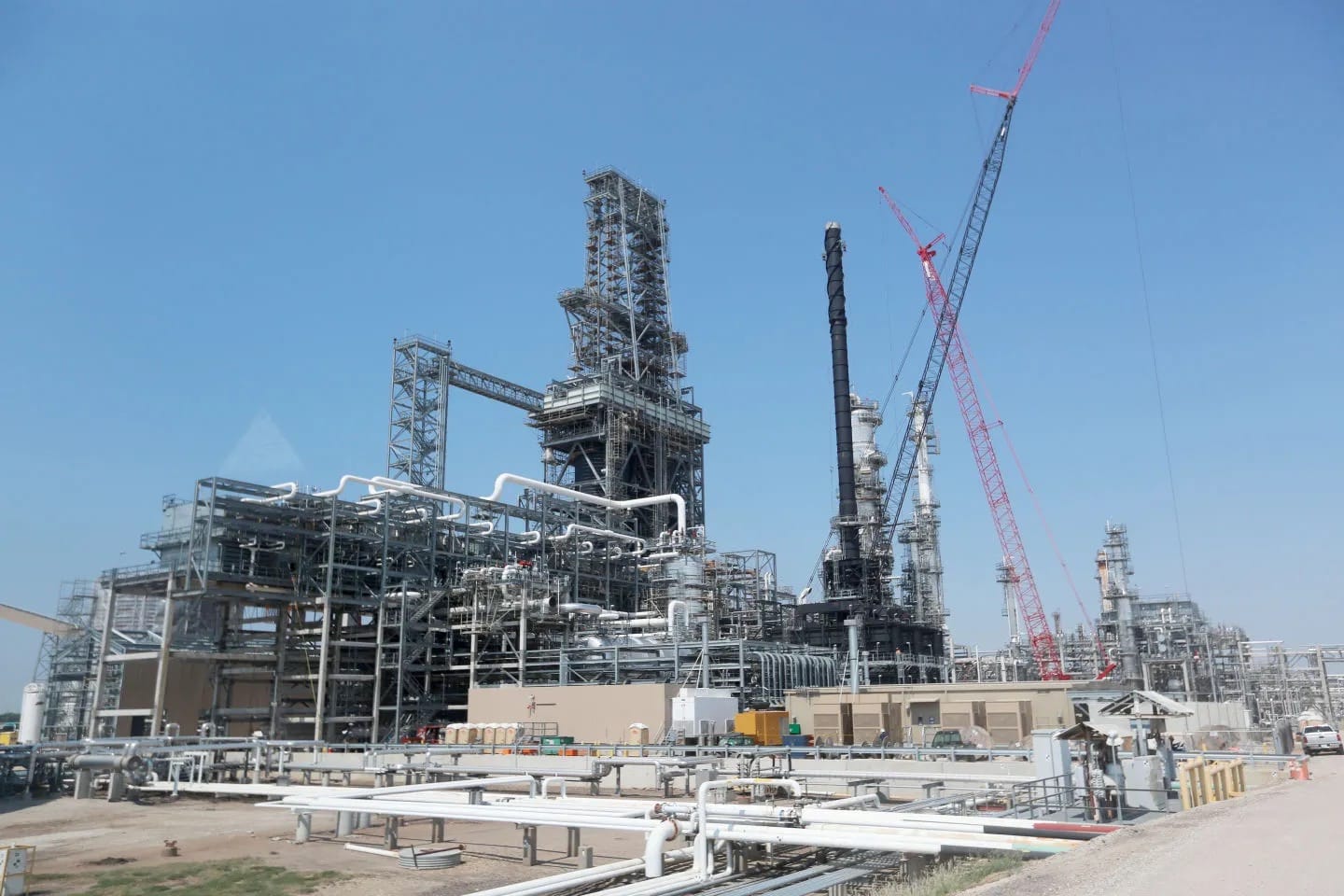McPherson's Oil Refinery Chugs Along After Nine Decades
The history of the McPherson refinery

Directed by humans, AI-assisted
In 1931, against the bleak backdrop of the Great Depression, the people of McPherson took a bold step that would forever reshape their town’s future. Local leaders, determined to secure jobs and economic stability, invited oilman I.A. O’Shaughnessy to build a refinery on a prime site just south of town. By March 1933—after only six months of construction—the Globe Oil & Refining Company facility opened its doors. It was a remarkable achievement for a community struggling to stay afloat in one of America’s darkest hours.
From the outset, the new refinery symbolized hope. Its first 100 employees adopted a bulldog as their mascot, reflecting the tenacity required to succeed in such difficult times. O’Shaughnessy himself seemed astonished by McPherson’s unyielding optimism, famously quipping during the grand opening ceremony that “as soon as you get in the county the Depression disappears.”
The facility also played an unexpected role in sports history. In 1933, a company-sponsored basketball team called the McPherson Globe Refiners rose to national prominence in amateur competitions. Six of its players went on to compete for the first U.S. Olympic basketball team, which won gold at the 1936 Berlin Games. Although basketball glory was just a footnote to the refinery’s main mission, it remains a beloved chapter in local lore.
By the early 1940s, World War II had shifted American industry into overdrive, and the McPherson refinery took on a new strategic importance. In 1943, O’Shaughnessy sold the facility to a coalition of farm cooperatives that formed the National Cooperative Refinery Association (NCRA). Dedicated to supplying fuel to farmers and rural communities struggling with wartime shortages, NCRA ensured that agricultural needs were met. Through this cooperative model, the McPherson refinery delivered the reliable energy lifeline rural America depended on, increasing its throughput to around 15,000 barrels of crude oil per day.
In the boom years after the war, the refinery grew steadily. Technological upgrades came at a brisk pace: by 1952, it had installed a delayed coker unit to process heavier crude oils, allowing for greater efficiency and a broader range of refined products. Over time, further expansions and modernizations continued to increase capacity. By the early 1990s, the refinery was processing approximately 75,000 barrels per day—transforming it into a formidable player in the regional market.
In the 1990s, Cenex—one of the founding co-ops—took a majority stake in NCRA’s McPherson refinery. The refinery began a series of significant modernization projects. The most notable was the “Clean Fuels” upgrade completed in 2005 at a cost of $300 million, adding cutting-edge hydrocracking and hydrogen production units. This major overhaul enabled the refinery to produce ultra-low sulfur gasoline and diesel, anticipating stricter federal standards.
By 2011, CHS moved to fully acquire the McPherson refinery, buying out minority stakeholders and eventually completing the purchase and renaming it the CHS Refinery at McPherson in 2015. The refinery launched a billion-dollar expansion program between 2013 and 2016, boosting throughput from 85,000 to 115,000 barrels per day and replacing aging equipment. A new delayed coking unit came online in early 2016, allowing the facility to process a wider variety of crude oils more efficiently.
Jim Loving, McPherson-resident and 2025 Mayoral candidate, was president of NCRA from 1995 to 2015, and in charge of all CHS Refining from 2012 to 2018. He oversaw the early-21st century expansions and told citizen journal "it was the highlight of my career to lead the expansion projects at then-NCRA. I believe we honored the legacy of I.A. O’Shaughnessy and set the refinery up to thrive for another 90 years".
From its Depression-era origins to its current status as a modern, high-capacity refinery, the McPherson plant has always remained a vital economic engine. It provides hundreds of well-paying jobs, supports local contractors, and invests in community initiatives ranging from grants for schools, the hospital and the opera house to local volunteer projects. Generations of families have worked there, passing down a sense of pride in an operation that has shaped McPherson’s identity.
Sponsors (click me!)










